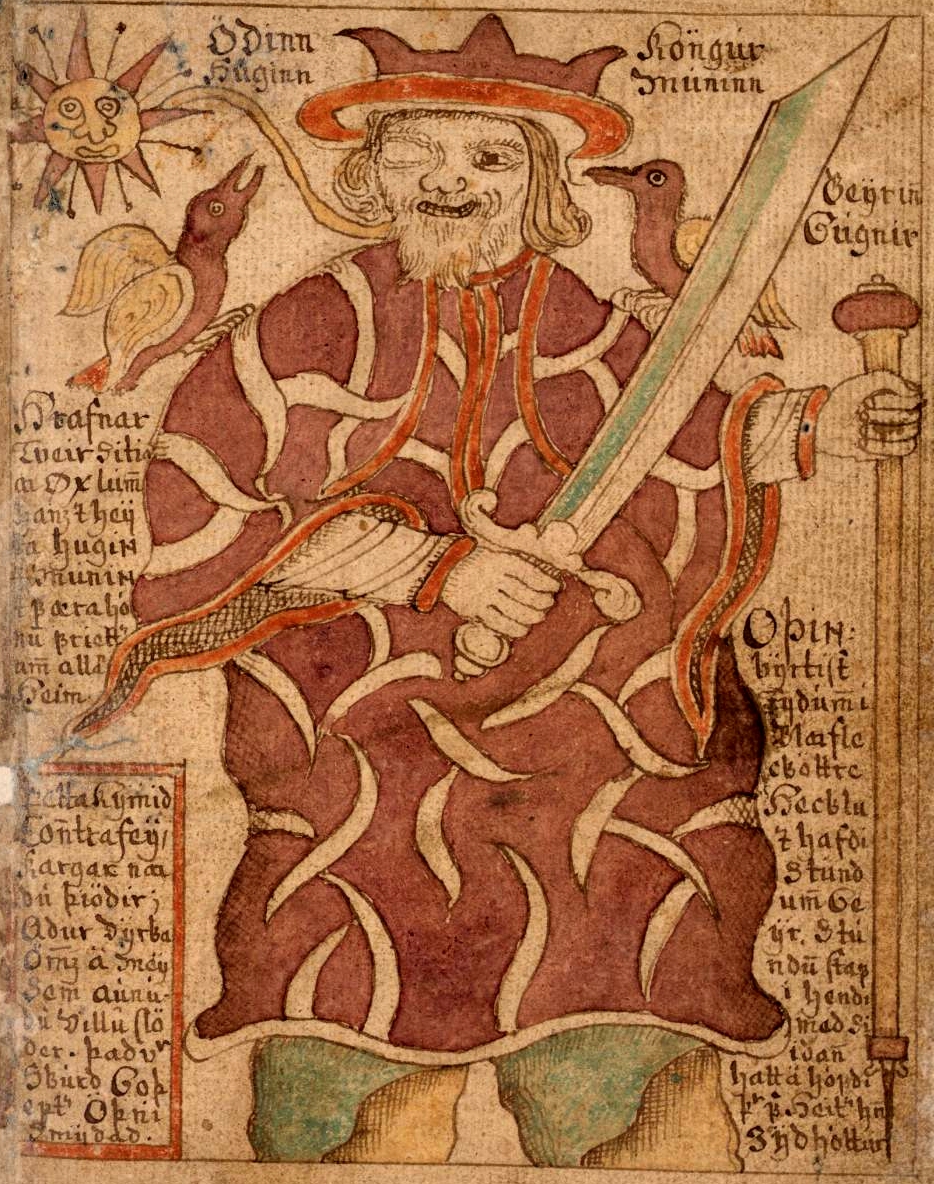| Name ▲▼ | Origin ▲▼ | Description ▲▼ |
|---|---|---|
| Goddess name "Rind" | Northern Germanic / Nordic / Icelandic | Chthonic goddess. She is mentioned as a consort of OTHIN and mother of VALI. Also Rinda; Rindr.... |
| Spirit name "Samiel" | German | The Black Huntsman of the Wolf's Glen. A Satanic spirit, who gave to a marksman who entered into compact with him seven balls, six of which were to hit infallibly whatever was aimed at, but the seventh was to deceive. The person who made this compact was termed Der Freischutz. German |
| Deities name "Saxnot" | Saxon | Tutelary god. He is mentioned beside Woden and Thunor as one of the deities to be renounced at Christian baptism. As Saxneat he was allegedly the founder of the Saxon royal dynasty in Essex. The name may derive from the word sahsginot meaning companion of the sword. He may also equate with the German god Tyr.... |
| Goddess name "Sessrumnir" | Germanic | Goddess of fertility. Germanic |
| Goddess name "Sif" | Nordic / Icelandic / / Germanic | corn goddess. The consort of THOR. She is mentioned in the Eddaic Lay of Lokasenna and in the Lay of Har barth. According to Snorri Sturluson she was originally a prophetess called Sibyl. She possesses great beauty and has long golden hair. Her sons are ULL and Loridi. According to tradition, LOKI cut off Sif's hair in mischief, but when confronted and threatened by Thor, he had the dwarfs make her a magical hairpiece of pure gold which, when it touched her head, became a living part of her and grew.... |
| Goddess name "Sindgund" | Germanic | Goddess of healing charms. Germanic |
| Goddess name "Sirona" | Celtic / Roman | A local goddess of healing from the Moselle basin of Germany |
| Goddess name "Sirona" | Roman / Celtic / Gallic | Local goddess of healing. Known from limited inscriptions in which she is usually åśśociated with the god GRANNUS or with the Celtic APOLLO. A sculpture from Hochscheid in the Moselle basin in Germany describes her with a snake round her wrist reaching toward a bowl of three eggs in her left hand. She may also have a small lapdog. Some authors suggest she has sky åśśociations.See also DIVONA and ONUAVA.... |
| God name "Taranis" | Roman / Celtic / Gallic | Thunder god. Known only from limited inscriptions, but may emulate the Germanic god DONAR and is possibly the same as Taranucos. The Romans equated him with JUPITER and a Jupiter Tanarus inscription at Chester in England may refer to Taranis. His symbol is a spoked wheel and he is presumed to be the object of savage rites. The modern Breton word for thunder is taran. Also Taranos.... |
| God name "Thunor" | Germanic | God of fertility, lightning and thunder germanic |
| God name "Tiwaz" | Germanic | The chief sky god and the god of war. Germanic |
| God name "Tursas" | Finland | The Tavastian god of war. May be same as the Norse Tyr and the Germanic Tîwaz. |
| God name "Ull/ Ullr" | Germanic / Norse | A god of archery, hunting & skis |
| Goddess name "Vi of Wara" | German | A goddess of healing springs |
| Goddess name "Vor" | Nordic / Icelandic | Goddess. Of Germanic origin, one of the AESIR goddesses listed by Snorri in Prose Edda. He suggests that Vor may be concerned with the making of oaths and of marriage agreements, punishing those who break them. Possibly also Var(a), though Snorri lists her as a separate Aesir goddess.... |
"Were-Wolf" | Germanic | A human being, sometimes in one form and sometimes in another. |
"Wild Huntsman" | German | The German tradition is that a spectral hunter with dogs frequents the Black Forest to chase the wild animals. The English name is "Herne the Hunter," who was once a keeper in windsor Forest. In Winter time, at midnight, he walks about Herne's Oak, and blasts trees and cattle. He wears horns, and rattles a chain in a "most hideous manner". Another legend is that a certain Jew would not suffer Jesus to drink out of a horse-trough, but pointed to some water in a hoof-print as good enough for "such an enemy of Moses," and that this man is the "Wild Huntsman." Various |
| Goddess name "Wilden Wip" | Germanic | Goddesses of healing. Germanic |
Table of Gods
Your guide to the World gods, spirits,
demons and legendary monsters

German Mythology Names
These names occur in Germanic mythologies and legends.
